News
-
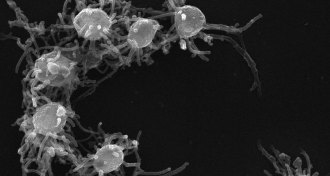 Life
LifeOne-celled life possessed tools for going multicellular
Unicellular ancestors of animals had molecular tools used by multicellular life.
-
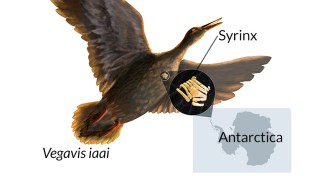 Paleontology
PaleontologyBirds’ honks filled Late Cretaceous air
Oldest avian voice box fossil yet discovered belonged to a ducklike bird that lived during the age of the dinosaurs.
By Meghan Rosen -
 Neuroscience
NeuroscienceNerve cell migration after birth may explain infant brain’s flexibility
A large group of neurons migrates into babies’ frontal lobes after birth.
-
 Psychology
PsychologyChimps, other apes take mind reading to humanlike level
In a first, apes show that they understand when others hold false beliefs.
By Bruce Bower -
 Earth
EarthSeismologists surprised by deep California quakes
Small earthquakes detected along the Newport-Inglewood Fault originate from deeper underground than once thought possible.
-
 Chemistry
ChemistryMolecules for making nanomachines snare chemistry Nobel
Nanochemists win Nobel prize for devising molecular machines
By Tina Hesman Saey and Thomas Sumner -
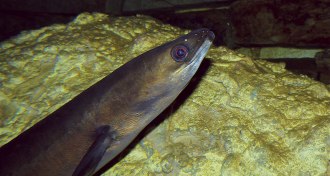 Animals
AnimalsEels may not take most direct route in epic ocean-crossing spawning runs
European eels’ epic ocean migrations to spawn may include more peculiar routes and timing than thought.
By Susan Milius -
 Physics
PhysicsNobel awarded for using math of shapes to explain exotic matter
The three scientists who won the 2016 Nobel Prize in physics predicted new materials using mathematics illustrated by bagels and pretzels.
-
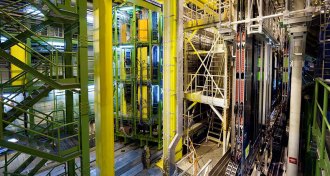 Particle Physics
Particle PhysicsEvidence for new form of matter-antimatter asymmetry observed
Particles known as baryons show their first hints of antimatter-matter discrepancies.
-
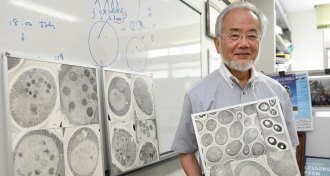 Health & Medicine
Health & MedicineDeciphering cell’s recycling machinery earns Nobel
The 2016 Nobel Prize in physiology or medicine was awarded to Yoshinori Ohsumi for his work on autophagy, a process that cells use to break down old parts for future use.
By Meghan Rosen and Laurel Hamers -
 Anthropology
AnthropologyBig Viking families nurtured murder
Vikings in Iceland got a murderous boost from having large extended families.
By Bruce Bower -
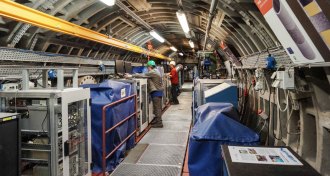 Physics
PhysicsRarest nucleus reluctant to decay
Tantalum-180m has a half-life more than a million times the age of the universe.